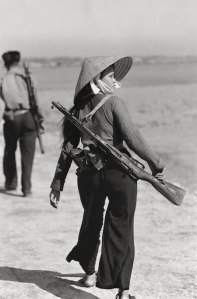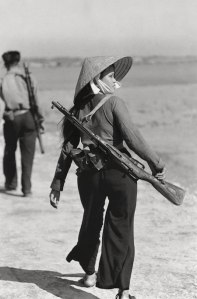In struggle with who and what?
- our lack of political activity on campus and in Amerikkka
- the lack of critical research on Asian Amerikans
- the lack of collaborative work with other student organizations
- the institution and authority figures
- ourselves because not everyone will develop politically at the same pace
The Asian/Asian American Studies minor passed during March of last school year. While that is a victory in itself, the fight for the minor is not over yet. There are many professors teaching courses in Asian Studies, but we do not have any qualified professors who can teach Asian American Studies. The school has been slow to hire someone to fulfill that job and, most importantly, students’ needs.
Because on this injustice (reminder: tuition is over 50k), students have formed a study group that meets bi-weekly to teach and learn from each other the radical history of Asian/Asian Amerikans.
Aside from learning the radical history of Asian/Asian Amerikans, we are learning to think critically and analytically – and not so we can just regurgitate any of the material we come into contact with.
 We also must not forget why there was a movement for ethnic studies. students who were involved with ethnic studies went beyond trying to establish an asian american studies program at their school and taking control of what they were learning. They were conscious of what was happening around the world. And, they were condemning the US for attacking “third world” nations. There was international solidarity. They also formed ethnic studies to give back to their community. “Giving back to the community” is such an overused phrase nowadays. What does it mean to give back to the community? The students involved in the ethnic studies movement (and the Asian Amerikan Movement) were also involved with community organizing. When tenants – the majority being Filipino and Chinese- from the International Hotel (known as I-Hotel) were evicted, students were one of the many contingents that fought against the eviction. Where do you see that today? The work and energy put forth by asian amerikan students and activists during this time period is what inspires me to continue with my work, particularly with APSIS.
We also must not forget why there was a movement for ethnic studies. students who were involved with ethnic studies went beyond trying to establish an asian american studies program at their school and taking control of what they were learning. They were conscious of what was happening around the world. And, they were condemning the US for attacking “third world” nations. There was international solidarity. They also formed ethnic studies to give back to their community. “Giving back to the community” is such an overused phrase nowadays. What does it mean to give back to the community? The students involved in the ethnic studies movement (and the Asian Amerikan Movement) were also involved with community organizing. When tenants – the majority being Filipino and Chinese- from the International Hotel (known as I-Hotel) were evicted, students were one of the many contingents that fought against the eviction. Where do you see that today? The work and energy put forth by asian amerikan students and activists during this time period is what inspires me to continue with my work, particularly with APSIS.
The first two meetings have been on two topics: Revolutionary Womyn and the Liberation of Womyn. Beginning with topics about Asian womyn is especially important because we are doubly oppressed. Doubly oppressed in that (1) we live in a patriarchal society and (2) we live in a white supremacist settler colony. There is also this idea of Asian men being more oppressed than Asian womyn. That idea needs to be abolished and this is exactly one of the things that APSIS is trying to do.
If you’re interested in getting involved, here are the topics of the last three meetings of the semester:
(1) Theory of Womyn’s Liberation
(2) Broad History of 1960s/1970s
(3) I Wor Kuen
You can also contact me at afeng@syr.edu.
–Alice Feng

